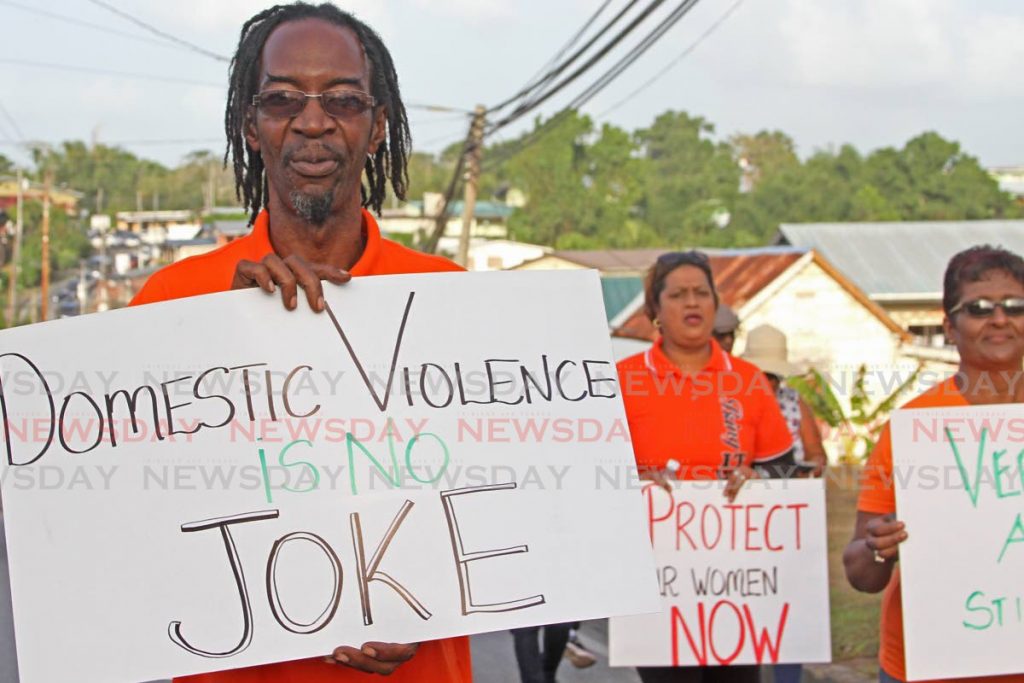Change laws to forcibly remove abuse victims, says senator

INDEPENDENT Senator and psychiatrist Dr Varma Deyalsingh once had to rescue a victim of domestic violence, but his act of kindness almost landed him in jail.
Had it not been for the pleading of a social worker he would have been in trouble with the law. Deyalsingh said the woman returned to her abuser and told the police he had kidnapped her.
The inability to save women from themselves, he said, is what compels him as a legislator to pass laws for the police to remove women who are reluctant to leave on their own, because of one phobia or another, from their abusive homes.
Deyalsingh’s comment was during a webinar on family violence in Suriname, Trinidad and Tobago and the wider Caribbean.
The webinar was hosted by the Ansa McAl Psychological Research Centre and chaired by Prof Ambika Krishnakumar of the Syracuse University, USA. It also featured Dr Inger van der Kooij of the Netherlands Institute for Forensic Psychiatry and Psychology, jurist Maya Manohar of the Institute for Graduate Studies and Research and Anton de Kom of the University of Suriname.
Deyalsingh recalled the "kidnapping incident" took place years ago while he was working as a junior doctor at a health centre.
“Two weeks before, a patient’s intoxicated husband came to clinic filled with anger, saying he was looking for her and would deal with her."
He said the woman had visited the clinic before, nursing wounds from abuse.
Before her husband, who could get to her, Deyalsingh said he and a nurse rescued the woman and her children and took them to a safe house.
Deyalsingh said the woman, who subsequently moved back with her husband, reported that he (Deyalsingh) took her against her will. She was later burnt and disfigured by her abuser.
“I always wondered why women do not leave an abusive situation. We have safe houses, a police unit dedicated to domestic violence, media reports on the dangers. While we save some, others are incapable of leaving. They have psychological chains which bind them to the abuser and this could cloud their judgement.”
Deyalsingh explained that the Mental Health Act provides the basis to involuntarily apprehend people who are mentally ill.
“My take is we have to develop a legal system where we can go into a home, take certain individuals who may be clouded in their judgement, and rescue them and bring them into treatment.
“If we can use the Mental Health Act or put apprehension guidelines in our Domestic Violence Act, we can save some lives."
“Many times, the abused makes a police complaint and then go back. We can’t fault them as they may be helpless,” he said.
There are several contributing psychological factors such as Stockholm syndrome, trauma bonding theory, learned helplessness, distorted thoughts or damaged self-worth, he said.
He said on average, “victims experience 50 incidences of abuse before getting help. They live with domestic abuse for two to three years and medium victims for three years before getting help.”
Deyalsingh said the cost of treatment and counselling is underestimated as it does not take private treatment into account. The cost of processing a homicide is already high and with the onslaught of covid19 in a shrinking economy where there is a more domestic violence cases, the cost will escalate.
“We need to provide a treatment that begins to challenge a woman’s automatic thoughts about herself and her relationship in an attempt to weaken the traumatic bond, or to challenge the beliefs behind why a woman wants to forgive her partner might be a useful next step in developing more effective support in helping women make the difficult decision to end it.”

Comments
"Change laws to forcibly remove abuse victims, says senator"